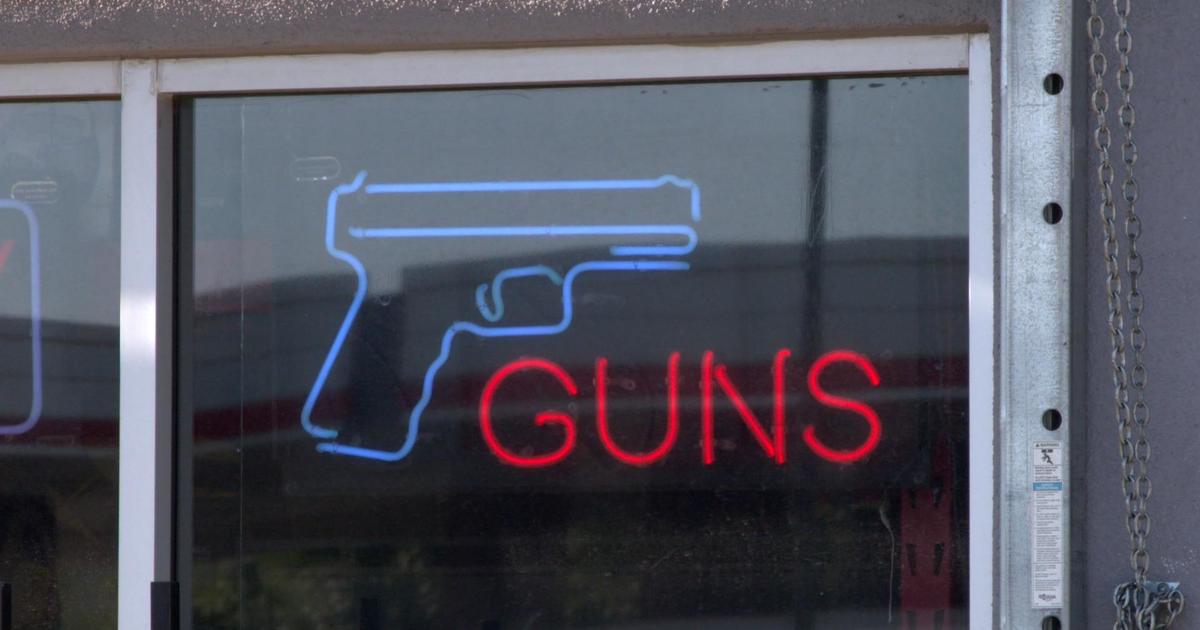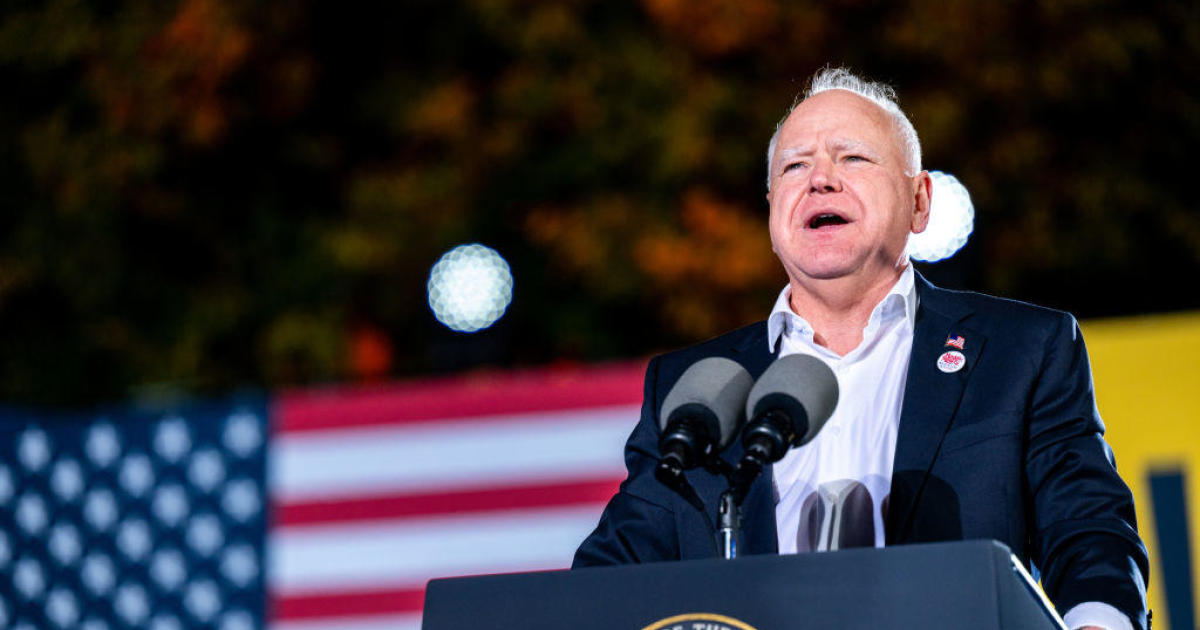During one of the deadliest chapters in its history, Mexico’s government devised a new strategy to curb gun violence; it filed two lawsuits.The first, in 2021, included U.S. gun manufacturer Smith & Wesson and one of their wholesalers. The second, filed a year later, against five U.S. gun stores, claimed they engaged in “reckless and unlawful business practices” that supply dangerous criminals.
An estimated 200,000 to half million U.S. firearms are smuggled into Mexico every year. Mexico asked American attorney Jonathan Lowy to help cut off the gun pipeline, known as the “iron river.”
“If you think fentanyl overdoses are a problem, if you think migration across the border is a problem, if you think the spread of organized crime is a problem in the United States, then you should care about stopping the crime gun pipeline to Mexico,” Lowy said. “And you need to stop it at its source. Because all those problems are driven by the supply of U.S. guns to the cartels.”
Like the U.S., Mexico’s constitution grants its citizens the right to bear arms. But unlike the U.S., that right comes with a long list of restrictions.
There’s also a big difference in the number of gun dealers. In the U.S., there are more than 75,000 active gun dealers, twice as many as U.S. post offices. While in Mexico, there’s just one gun store. It’s located in the middle of a heavily guarded military base in Mexico City.
Before customers can even enter, they must show proof they’ve passed psychological tests, drug screens and extensive background checks. The store sells about 1,000 guns a month, mostly shotguns, small caliber rifles and handguns.
The high caliber guns the cartels favor are not sold legally to civilians in Mexico. However, the cartels have no trouble getting them elsewhere.
On Oct. 17, 2019 Mexican armed forces captured one of the most wanted drug lords in the world, Ovidio Guzmán López, the son of the former Sinaloa cartel boss known as El Chapo. What should have been a turning point in the war on drugs turned into a deadly, five-hour gun battle. Hundreds of cartel gunmen, outfitted for combat, doused soldiers with gunfire, took hostages and blocked entrances to the city with burning vehicles.
Outgunned, and hoping to end the bloodshed, Mexico’s president at the time, Andrés Manuel López Obrador, ordered Guzmán released. This past March, 60 Minutes spoke with then-President López Obrador. Homicides and cartel violence soared during his six-year term and he said the U.S. was partly to blame.
“We have confiscated, in the time that I’ve been in government, 50,000 guns of high power, of high caliber,” he said. “Fifty thousand guns. And 75% of them from the United States.”
Three years after the deadly battle, Guzmán was recaptured in Sinaloa in 2023. His arrest sparked another gunfight that left 10 soldiers dead.
According to documents obtained by 60 Minutes, 47 guns were seized after Guzmán’s capture, including an AK-47-style rifle traced back to one of the gun dealer defendants in Mexico’s lawsuit, Ammo AZ.
When a gun is recovered at a crime scene, it’s the job of the Bureau of Alcohol, Tobacco, Firearms and Explosives (ATF) to trace it. Tim Sloan was ATF’s attaché in Mexico from 2019-2022. As attaché he ran the ATF’s four field offices in Mexico. In 2019, an incident at a cartel ranch near Guadalajara made a lasting impression on him.
“There was dead bodies everywhere…There were 55 gallon drums with body parts in ’em,” said Sloan. “And all the weapons in that house came from the United States. All of them.”
Sloan says most of the guns the ATF traced in Mexico were sold directly to traffickers or to so-called “straw purchasers,” someone who buys a firearm on behalf of another person
“You’re offering a 23-year-old girl in Arizona $4,000, $5,000 just to go into a store and buy a gun for you,” Sloan said. “She’s going to do that. A lot of people are going to do that, especially if they have any addiction problems, but no criminal record.”
If buyers do not have a criminal history, in certain states, they can buy as many guns as they want. After that comes the easy part, “just drive across the border, ” explained Sloan.
The ATF traced 50,000 American guns recovered in Mexico from 2015 to 2022 to gun dealers across the United States. Mexico’s lawsuit names just five dealers, all from one state: Arizona. Alejandro Celorio, the attorney who spearheaded the lawsuits for the Mexican government, said he believes those dealers are liable for facilitating the arms trafficking that empowers the cartels.
The five gun shops named in the suit were selected based on who Mexico believes are “the bad actors in this dynamic,” Celorio said.
It’s difficult to know which gun dealers could be these so-called “bad actors” because U.S. law prohibits the ATF from publicly releasing specific gun trace information. But 60 Minutes reviewed internal ATF and Mexican law enforcement documents. According to those documents, 566 guns recovered in Mexico over a four-and-a-half-year period were traced back to the Arizona dealers named in Mexico’s lawsuit. Nearly 200 of the guns came from one dealer: Ammo AZ, located near Phoenix and owned by Veerachart “Danger” Murphy.
Murphy declined to be interviewed by 60 Minutes, but after Ammo AZ was named in Mexico’s suit, he posted a response online.
“If we were actually doing something illegal, ATF, FBI would have already shut us down. And I would be in jail,” he said in his online post.
The ATF has said a crime gun trace does not necessarily indicate gun dealer wrongdoing.
Lowy, who has litigated gun cases in more than 40 states and is now co-counsel in Mexico’s case, said dealers are legally obligated not to sell guns to someone they suspect is a straw buyer or a trafficker.
“The dealer’s main responsibility, in my view, is to pay attention to indicators to see if the person standing in front of them, on the other side of the counter, is a potential criminal or supplier to the criminal market,” Lowy said.
Gun dealers who 60 Minutes spoke with say they’re running the needed background checks, filling out the required paperwork and doing what they’re supposed to do. They say it’s challenging to know sometimes if somebody’s a straw buyer, but Lowy disagrees.
“It’s pretty obvious,” he said. “I mean, you see these multiple sales of AR-15s, you see these large cash payments, you see these persons coming back to the store every few days or every few weeks. I mean, these are not normal buying patterns.”
Most gun dealers in the U.S. act responsibly, Lowy said.
“That shows that if you pay attention to these obvious indicators of trafficking and straw buying, you can actually stop supplying crime guns,” Lowy said. “The problem is these bad actors. And there’s no good reason why manufacturers don’t say, ‘Look, if you’re selling our guns use best practices.'”
It’s why Mexico filed its other lawsuit, which included gun manufacturer Smith & Wesson and one of its wholesalers.
Under U.S. law, gunmakers have typically been shielded from liability when one of their guns is used during a crime. But Mexico is arguing the manufacturer is “aiding and abetting” gun trafficking to the cartels. Smith & Wesson called that allegation “not true.” Smith & Wesson did not respond to a request for comment from 60 Minutes.
“When manufacturers make the decision, ‘We’re going to sell guns through dealers no matter what their record is, no matter how many crime guns they’re selling,’ You know, that’s on them,” Lowy said.
According to Lowy, gun manufacturers, dealers and distributors get trace data, though the ATF has said a crime gun trace does not necessarily indicate gun dealer wrongdoing.
Lowy explained, “Every seller in the chain knows if a gun they sold was recovered in a crime.”
If Mexico’s lawsuit is successful, it could open the door for more lawsuits, foreign and domestic, against the gun industry. Earlier this year, gun manufacturers successfully petitioned the Supreme Court to review the case. They argued they could face years of costly litigation by another country that’s “trying to bully the industry into adopting a host of gun control measures.”
During his interview with 60 Minutes, then-President López Obrador said it was the responsibility of both the U.S. and Mexican governments to stop the gun trafficking.
“But there has to be cooperation,” he said. “You cannot sell weapons to just anybody.”




